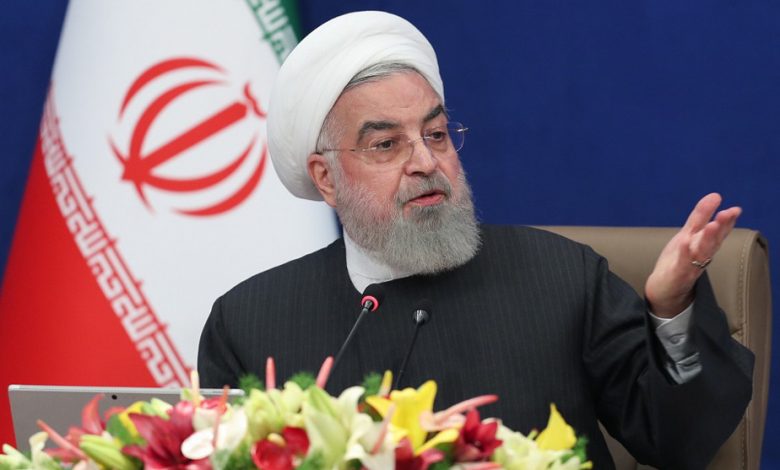Rouhani rejects calls for changes to Iran deal, its original signatories
Iran’s President Hassan Rouhani has once again rejected calls for changes to the content of the 2015 nuclear deal and its original participants, after France said any new negotiations on the multilateral agreement should also include the Saudi regime.

Speaking at a cabinet meeting in Tehran on Wednesday, Rouhani said the Joint Comprehensive Plan of Action (JCPOA) — as the nuclear deal is named — was not achieved easily, but was the fruit of 10 years of diplomatic endeavors.
“No article of the JCPOA will be changed. No one will also be added to the JCPOA. If we are 4+1, we will remain the same. If we are 5+1, we will remain the same,” he told the world community, especially the signatories to the agreement.
Rouhani was responding to certain calls for the participation of Saudi Arabia and other Persian Gulf states in any talks on reviving the JCPOA, better known as the Iran deal.
The latest such call came from France, whose President Emmanuel Macron said late last month that Riyadh and other regional allies of Paris.
“Dialogue with Iran will be rigorous, and they will need to include our allies in the region for a nuclear deal, and this includes Saudi Arabia,” Macron told Al Arabiya on Friday.
Iran has repeatedly said the JCPOA is a done deal, rejecting any renegotiation or amendments to it.
The JCPOA was reached between Iran and a group of countries then known as the P5+1 — which included the United States, Britain, France, Russia, China, and Germany — in July 2015. It was ratified in the form of UN Security Council Resolution 2231.
However, in May 2018, then US president Donald Trump unilaterally pulled his country out of the JCPOA and re-imposed the sanctions that had been lifted under the UN-endorsed the deal.
Iran remained fully compliant with the JCPOA for an entire year, as verified by the International Atomic Energy Agency (IAEA), waiting for the co-signatories to honor their commitments and offset the impacts of the US withdrawal.
But, as the European parties continued to renege on their obligations, the Islamic Republic moved in May 2019 to suspend its JCPOA commitments under articles of the deal covering Tehran’s legal rights in case of non-compliance by the other side.
Trump’ successor, Joe Biden, has pledged to return the accord if Iran returns to compliance.
Iran, however, says the US should first prove its resolve to rejoin the agreement by lifting the sanctions.
Elsewhere in his remarks, Rouhani said Iran feels that the world’s public opinion and politicians — including those in the US — believe the JCPOA benefits security, peace and interactions among countries.
He further noted, “There have been seven chairs and we six parties are sitting on them [after the US quit]. One side was suddenly struck by periodic mania and left. Now, that party has come to its senses to some extent and the episode of mania has ended. It should return to the table. What does it have to do with the other [signatories] who are already at the table? The Americans must return to Resolution 2231 and international law.”
“You commit even a bigger crime if you hesitate because you violated Resolution 2231… Of course, if you return, we will also honor our obligations completely, and this is very clear. We did not violate any resolution so that we would seek to amend it. We did not leave the JCPOA so we would want to return to it,” the Iranian chief executive added.
“If we see any goodwill gesture, the response will be a goodwill gesture. If we see any practical measure, the response will be a [similar] measure. If the commitments are fully [fulfilled], there will be a full commitment on our part as well,” the president said.







